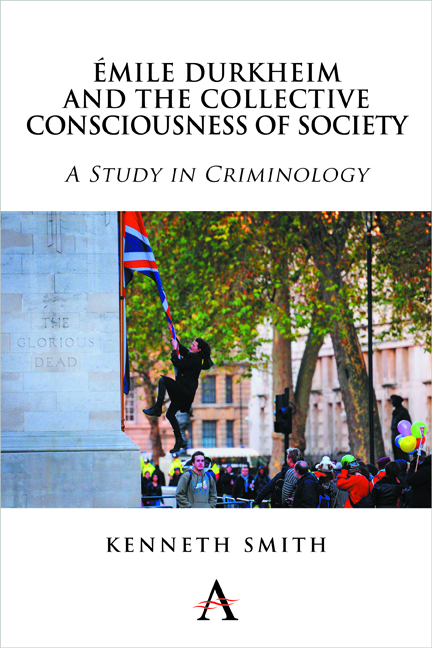Book contents
- Frontmatter
- Dedication
- Contents
- Epigraph
- Preface
- Introduction
- Part I The Concept of the Collective Consciousness of Society
- Part II The Form of the Collective Consciousness
- Part III Durkheim on Crime and Punishment
- Part IV Social Fact or Social Phenomenon? Durkheim's Concept of the Collective Consciousness as a ‘Social Fact’
- Preface to Part IV
- Introduction to Part IV
- 13 What Does Durkheim Mean by the Concept of the ‘Social’ and What Does He Mean by the Concept of a ‘Fact’?
- 14 Social Facts or Social Phenomena?
- 15 Social Facts and Sociology
- 16 Social Facts as Living Things
- Conclusion to Part IV
- Part V Some Problems with Durkheim's Concept of the Common and Collective Consciousness
- Conclusion
- Appendix: On Paying a Debt to Society
- Notes
- References
- Index
Conclusion to Part IV
from Part IV - Social Fact or Social Phenomenon? Durkheim's Concept of the Collective Consciousness as a ‘Social Fact’
Published online by Cambridge University Press: 05 October 2014
- Frontmatter
- Dedication
- Contents
- Epigraph
- Preface
- Introduction
- Part I The Concept of the Collective Consciousness of Society
- Part II The Form of the Collective Consciousness
- Part III Durkheim on Crime and Punishment
- Part IV Social Fact or Social Phenomenon? Durkheim's Concept of the Collective Consciousness as a ‘Social Fact’
- Preface to Part IV
- Introduction to Part IV
- 13 What Does Durkheim Mean by the Concept of the ‘Social’ and What Does He Mean by the Concept of a ‘Fact’?
- 14 Social Facts or Social Phenomena?
- 15 Social Facts and Sociology
- 16 Social Facts as Living Things
- Conclusion to Part IV
- Part V Some Problems with Durkheim's Concept of the Common and Collective Consciousness
- Conclusion
- Appendix: On Paying a Debt to Society
- Notes
- References
- Index
Summary
In Part IV of this book I argued that contemporary criminology to a very large extent, and sociology to a lesser extent, has badly failed to consider just how far Durkheim was willing to go towards Kantian transcendentalism in order to establish what he saw as the true nature of social facts in social life. As we have now seen, Durkheim argued that social facts – and hence also the concept of the collective or common consciousness as one of his main examples of a social facts – were living beings in their own right. Summing up this discussion of Durkheim's concept of social facts and what this has to do with the concept of the common and collective consciousness of society, we have seen that for Durkheim social facts are a very peculiar class of things altogether. Not only are they external to ourselves and coercive over us but, it seems, they might even in some meaningful way be said to be alive too, and even to occupy another physical dimension from our own. Truly then, if Durkheim really had been the discoverer of this monstrous class of social beings – things hitherto unknown to science – he would have deserved his reputation not just as a great sociologist, but also as one of the greatest natural scientists of his day. But this then begs the question: was he in fact right to say this?
- Type
- Chapter
- Information
- Émile Durkheim and the Collective Consciousness of Society , pp. 158 - 160Publisher: Anthem PressPrint publication year: 2014



